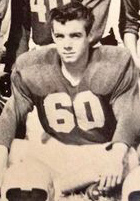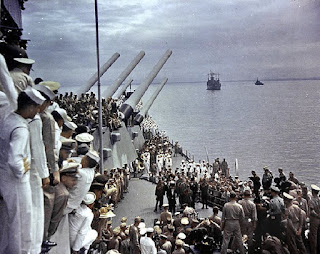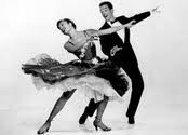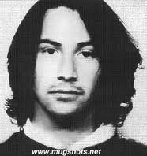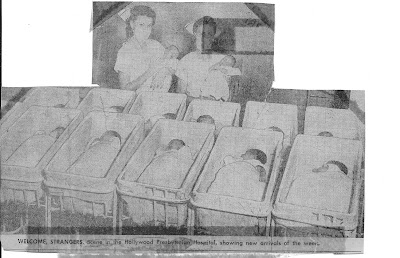Fred Astaire (born Frederick Austerlitz; May 10, 1899 – June 22, 1987) was an American dancer, actor, singer, choreographer and presenter. He is widely regarded as the "greatest popular-music dancer of all time". He received numerous accolades including an Honorary Academy Award, three Primetime Emmy Awards, a BAFTA Award, two Golden Globe Awards, and a Grammy Award. He was honored with the Film Society of Lincoln Center tribute in 1973, the Kennedy Center Honors in 1978, and AFI Life Achievement Award in 1980. He was inducted into the Hollywood Walk of Fame in 1960, American Theatre Hall of Fame in 1972, and the Television Hall of Fame in 1989.
Astaire's career in stage, film, and television spanned 76 years. He starred in more than 10 Broadway and West End musicals, made 31 musical films, four television specials, and numerous recordings. As a dancer, he was known for his uncanny sense of rhythm, creativity, and tireless perfectionism. Astaire's most memorable dancing partnership was with Ginger Rogers, whom he co-starred with in 10 Hollywood musicals during the classic age of Hollywood cinema, including Top Hat (1935), Swing Time (1936), and Shall We Dance (1937). Astaire's fame grew in films like Holiday Inn (1942), Easter Parade (1948), The Band Wagon (1953), Funny Face (1957), and Silk Stockings (1957). The American Film Institute named Astaire the fifth-greatest male star of Classic Hollywood cinema in 100 Years... 100 Stars.
Fred Astaire was born Frederick Austerlitz on May 10, 1899 in Omaha, Nebraska, the son of Johanna "Ann" (née Geilus; 1878–1975) and Friedrich "Fritz" Emanuel Austerlitz (1868–1923), known in the U.S. as Frederic Austerlitz. Astaire's mother was born in the U.S. to Lutheran German immigrants from East Prussia and Alsace. Astaire's father was born in Linz in Upper Austria, then part of the Austro-Hungarian Empire, to Catholic parents who had converted from Judaism.
Astaire's father Fritz Austerlitz arrived in New York City at the age of 25 on October 26, 1893 at Ellis Island. Fritz was seeking work in the brewing trade and moved to Omaha, Nebraska, where he was employed by the Storz Brewing Company. Astaire's mother dreamed of escaping Omaha by means of her children's talents. Astaire's older sister Adele was an instinctive dancer and singer early in her childhood. Johanna planned a brother-and-sister act, common in vaudeville at the time, for her two children. Although Fred refused dance lessons at first, he easily mimicked his older sister's steps and learned piano, accordion and clarinet.
The Astaires broke into Broadway in 1917 with Over the Top, a patriotic revue, and performed for U.S. and Allied troops at this time as well. They followed up with several more shows. Of their work in The Passing Show of 1918, Heywood Broun wrote: "In an evening in which there was an abundance of good dancing, Fred Astaire stood out ... He and his partner, Adele Astaire, made the show pause early in the evening with a beautiful loose-limbed dance."
Personal life
Astaire married 25-year-old Phyllis Potter in 1933 (formerly Phyllis Livingston Baker [1908–1954]), a Boston-born New York socialite and former wife of Eliphalet Nott Potter III (1906–1981), despite his mother's and sister's objections. Phyllis's death from lung cancer, at the age of 46, ended 21 years of marriage and left Astaire devastated. Astaire attempted to drop out of the film Daddy Long Legs (1955), which he was in the process of filming, offering to pay the production costs to date, but was persuaded to stay.
In addition to Phyllis Potter's son, Eliphalet IV (known as Peter), the Astaires had two children. The Astaires' son, Fred Jr. (born 1936), appeared with his father in the movie Midas Run and later became a charter pilot and rancher. The Astaires' daughter Ava Astaire (born 1942) remains involved in promoting her father's legacy.
Intensely private, Fred Astaire was rarely seen on the Hollywood social scene. Instead, he devoted his spare time to his family and his hobbies, which included horse racing, playing the drums, songwriting, and golfing. He was good friends with David Niven, Randolph Scott, Clark Gable and Gregory Peck. Niven described him as "a pixie—timid, always warm-hearted, with a penchant for schoolboy jokes." In 1946, his horse Triplicate won the Hollywood Gold Cup and San Juan Capistrano Handicap. He remained physically active well into his eighties. He took up skateboarding in his late seventies and was awarded a life membership in the National Skateboard Society. At 78, he broke his left wrist while skateboarding in his driveway. He also had an interest in boxing and true crime.
Astaire was a Republican and a charter member of the Hollywood Republican Committee.
Death
Astaire died of pneumonia on June 22, 1987, at the age of 88. His body was buried at Oakwood Memorial Park Cemetery in Chatsworth, California. One of his last requests was to thank his fans for their years of support.
If you want to read a lot more, go here: https://en.wikipedia.org/wiki/Fred_Astaire
- 1/2 pound small potatoes, cut into quarters
- 8 ounces petite carrots
- 3 tablespoons olive oil, divided
- 1 (1-ounce) package dry ranch dressing and seasoning mix, divided
- 4 bone-in center cut pork chops, about 1/2-inch thick
- Heat oven to 375º. Coat a baking sheet with cooking spray.
- In a bowl, combine potatoes, carrots, and 2 tablespoons oil; toss with 2 tablespoons dry ranch dressing mix until evenly coated. Place on baking sheet.
- Brush pork chops with remaining 1 tablespoon oil and sprinkle evenly with remaining dressing mix. Arrange pork chops between potatoes and carrots on baking sheet.
- Bake 25 minutes or until pork is no longer pink in center and vegetables are tender, turning pork halfway through cooking.
1919 – Marge Champion, American actress (d.2020)









